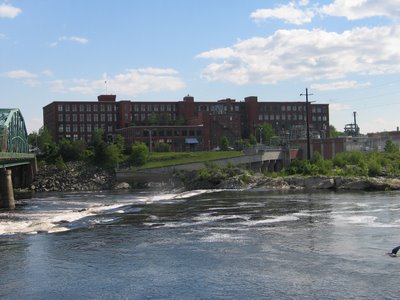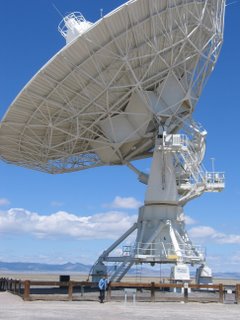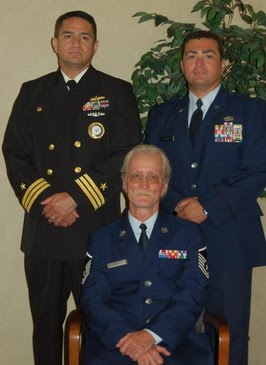
In “Bring Them Freedom, or They Will Destroy Us,” Bernard Lewis—one of the West’s leading Islamic historians—writes one of the best essays on the subject of Islam, liberty, democracy, and the confrontation between Islam and the West I’ve seen of late. Long (yet concise) on historical content, Lewis’s essay presents essential background information on why Islamic cultures act the way they do and discusses three historical trends (Modernization and Nazi and Soviet influence; Wahhabism and Oil; and the Iranian Revolution and al Qaeda) that shaped Islam’s culture and body politic as we know it today. Mr. Lewis concludes with his assessment of the current situation, which I’ll quote at length:
As Osama bin Laden puts it: "In this final phase of the ongoing struggle, the world of the infidels was divided between two superpowers--the United States and the Soviet Union. Now we have defeated and destroyed the more difficult and the more dangerous of the two. Dealing with the pampered and effeminate Americans will be easy." And then followed what has become the familiar description of the Americans and the usual litany and recitation of American defeats and retreats: Vietnam, Beirut, Somalia, one after another. The general theme was: They can't take it. Hit them and they'll run. All you have to do is hit harder. This seemed to receive final confirmation during the 1990s when one attack after another on embassies, warships, and barracks brought no response beyond angry words and expensive missiles misdirected to remote and uninhabited places, and in some places--as in Beirut and Somalia--prompt retreats.
What happened on 9/11 was seen by its perpetrators and sponsors as the culmination of the previous phase and the inauguration of the next phase--taking the war into the enemy camp to achieve final victory. The response to 9/11 came as a nasty surprise. They were expecting more of the same--bleating and apologies--instead of which they got a vigorous reaction, first in Afghanistan and then in Iraq. And as they used to say in Moscow: It is no accident, comrades, that there has been no successful attack in the United States since then. But if one follows the discourse, one can see that the debate in this country since then has caused many of the perpetrators and sponsors to return to their previous diagnosis. Because remember, they have no experience, and therefore no understanding, of the free debate of an open society. What we see as free debate, they see as weakness, fear and division. Thus they prepare for the final victory, the final triumph and the final Jihad.
[…]
Don't be misled by what you read in the media about Iraq. The situation is certainly not good, but there are redeeming features in it. The battle isn't over. It's still very difficult. There are still many major problems to overcome. There is a bitter anti-Western feeling which derives partly and increasingly from our support for what they see as tyrannies ruling over them. It's interesting that pro-American feeling is strongest in countries with anti-American governments. I've been told repeatedly by Iranians that there is no country in the world where pro-American feeling is stronger, deeper and more widespread than Iran. I've heard this from so many different Iranians--including some still living in Iran--that I believe it. When the American planes were flying over Afghanistan, the story was that many Iranians put signs on their roofs in English reading, "This way, please."
So there is a good deal of pro-Western and even specifically pro-American feeling. But the anti-American feeling is strongest in those countries that are ruled by what we are pleased to call "friendly governments." And it is those, of course, that are the most tyrannical and the most resented by their own people. The outlook at the moment is, I would say, very mixed. I think that the cause of developing free institutions--along their lines, not ours--is possible. One can see signs of its beginning in some countries. At the same time, the forces working against it are very powerful and well entrenched. And one of the greatest dangers is that on their side, they are firm and convinced and resolute. Whereas on our side, we are weak and undecided and irresolute. And in such a combat, it is not difficult to see which side will prevail.
Lewis makes one or two humorous observations in his essay, also. My favorite is this, in discussing Western attitudes about democracy:
The French cherish the curious illusion that they invented democracy, but since the great revolution of 1789, they have had two monarchies, two empires, two dictatorships, and at the last count, five republics. And I'm not sure that they've got it right yet.
Well, I’m sure Mr. Lewis has it right. Recommended. Highly recommended.
Lou posted a superb link on her blog yesterday to a milblog written by an Army sergeant on the ground in Baghdad. American Citizen Soldier provides us with a lengthy analysis of the state of the Baghdad pacification program, from the point of view of a guy who’s doing the heavy lifting. I’m gonna share that link. “Win, Lose, or Drawdown” is a lengthy post but is chock FULL of pointed and seemingly accurate commentary on what the Coalition Forces are doing right and what we’re doing wrong. Thanks for that, Lou.
The Times (UK) reports Lord Carey of Clifton, the former Archbishop of Canterbury, defends the Pope’s “extraordinarily effective and lucid” speech on Islam:
THE former Archbishop of Canterbury Lord Carey of Clifton has issued his own challenge to “violent” Islam in a lecture in which he defends the Pope’s “extraordinarily effective and lucid” speech.
Lord Carey said that Muslims must address “with great urgency” their religion’s association with violence. He made it clear that he believed the “clash of civilisations” endangering the world was not between Islamist extremists and the West, but with Islam as a whole.
“We are living in dangerous and potentially cataclysmic times,” he said. “There will be no significant material and economic progress [in Muslim communities] until the Muslim mind is allowed to challenge the status quo of Muslim conventions and even their most cherished shibboleths.”
Lord Carey isn’t the first Western religious leader to publicly support the Pope, he’s just the latest. Cardinal George Pell, the conservative leader of Australia's 5.1 million Roman Catholics, said:
…the violent reaction to the Pontiff's comments on Islam in many parts of the Islamic world "justified one of Pope Benedict's main fears".
[…]
"The violent reaction in many parts of the Islamic world justified one of Pope Benedict's main fears," Pell, the Archbishop of Sydney, said in a statement on Web sites of the Catholic Church of Australia.
"They showed the link for many Islamists between religion and violence, their refusal to respond to criticism with rational arguments, but only with demonstrations, threats and actual violence,"
Wretchard, writing at The Belmont Club, observes:
How has it happened that the most unlikely persons are speaking on what is apparently the most volatile of subjects? It is doubly surprising because there is a powerful reluctance within the organizational culture of Christian churches to voice any criticism of another religion. The statements by Pope Benedict XVI, Lord Carey and Cardinal Pell are really near-despairing expedients to fill the aching void left by Western cultural and political leaders -- a vacuum which has emboldened militant Islamic preachers to cross boundaries they would have respected until recently. This erasure of cultural borders caused by the near total desertion of the frontier by the so-called opinion-leaders has invited the most reckless elements of Islam across and raised the risk of real clash of civilizations. As Lord Carey put it: "We are living in dangerous and potentially cataclysmic times". It is a time made perilous not only by the absence of moderate voices within Islam but by the even more conspicuous absence of any leadership among Western politicians. It is a failure which will sooner or later lead to what military historians call a "meeting engagement" in which two forces, each possessed of its own momentum, blunder into each other with catastrophic results. A false kind of tolerance has abolished the fence between the piggery and mosque, the adult video store and the cathedral, the flaming match and the stick of dynamite and called it progress. It is no such thing. It is called stupidity.
What he said.
Victor Davis Hanson, writing at PajamasMedia:
In the most recent post, I praised some brave writers, military personnel, the President and a very few others. But, of course, there are millions of Americans that have no tolerance for appeasement. Each day just as candidly they speak out, write, or blog in defense of our old customs and values—in between long hours on the job keeping this country and much of the world running.
I shouldn’t have slighted them by not making explicit reference to their critical role, because in truth I try to read their thoughts in the letters sections of the papers, comments on the web (including every posting in response to this column that prompted this acknowledgment of the error of omission of my part), and emails.
There is an American Street that is a far more powerful, and a more responsible force than any such populace in the Arab world. Like many of you, I tire of hearing “Death to America” from the mobs in Teheran or Jericho, and am sick of the usual coffee-house Middle Eastern hack intellectual that CNN drags out from London, who, during the past 5 years, in his condescension and pompous diction, and in the safety of a host Western humane society, starts listing various perceived grievances against the West, and then issues warnings (!) about the furor of the temperamental “Arab Street.”
I respect and fear the American version far more, because its anger is fueled by reason and is slow and steady and furious when released. The world should not worry when the half-educated, fueled by zealotry and nursed on conspiracy theory, starts chanting; but it should when a rational and patient American slowly fumes and decides he has had it with the Iranian “President”, Hezbollah’s fascism, the various thugs on the West Bank, the Sunni Triangle’s murderers, the primordial of the Hindu Kush, or some subsidized dictator in Pakistan or Egypt lecturing us.
He’s right, you know. Slow to anger, but once aroused: Look out! Historically, this anger is most famously illustrated in a quote Admiral Isoroku Yamamoto allegedly made following Pearl Harbor: "I fear all we have done is to awaken a sleeping giant and fill him with a terrible resolve."
Today’s Pic: Part of the Very Large Array at the National Radio Astronomy Observatory “On the Plains of San Augustin,” New Mexico. April, 2004. If you saw the movie “Contact,” you’ve seen the VLA. A most impressive sight!
















.jpg)



